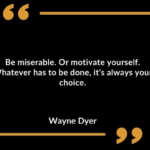“A person who never made a mistake never tried anything new.” – Albert Einstein: Why Making Mistakes Is Crucial to Innovation and Growth
This quote by Albert Einstein invites us to reflect on the nature of mistakes, the importance of experimentation, and the value of failure in the learning and innovation process.
The Fear of Failure
In our society, there is often a profound fear of failure. From a young age, we are encouraged to avoid mistakes, to stay within the lines, and to minimize risks. The education system, workplaces, and even social interactions can reinforce this fear. We are rewarded for success and punished for mistakes, creating a culture where making errors is seen as negative, something to be avoided.
However, this attitude can be detrimental to personal and professional growth. When we avoid failure, we also avoid opportunities to learn and grow. Innovation and progress often result from experimentation, from trying new things, and yes, from making mistakes. Without mistakes, there is no progress, and without progress, everything remains stagnant.
The Importance of Experimentation
Einstein's quote reminds us that making mistakes is inherent in trying new things. When we try something new, we step outside our comfort zone and enter uncharted territory. This can be frightening, but it is also where the magic happens. Experimentation is essential for innovation, and experiments inevitably lead to mistakes. These mistakes are not the end of the world, but rather learning moments that bring us closer to success.
Thomas Edison, another great inventor, understood this concept very well. In developing the light bulb, he made countless mistakes. Instead of becoming discouraged, Edison saw each failed attempt as a step closer to success. His famous quote, “I have not failed. I've just found 10,000 ways that won't work,” perfectly illustrates this mindset. By continuing to try, learn from his mistakes, and never giving up, he ultimately achieved his goal.
Mistakes as Learning Opportunities
When we make mistakes, they offer valuable learning opportunities. They allow us to analyze what went wrong, why it went wrong, and how we can do better next time. This reflection is crucial for personal and professional growth. The ability to learn from mistakes and to be resilient in the face of setbacks is one of the most important skills we can develop.
Moreover, mistakes can help us become more creative and innovative. When a plan doesn't work out as intended, we are forced to think outside the box and seek new solutions. This creativity can lead to breakthroughs and innovations that might not have been possible otherwise.
Fostering a Culture of Innovation
Organizations that wish to foster a culture of innovation and experimentation must create an environment where mistakes are not punished but seen as valuable learning moments. This means that leaders and managers must acknowledge that mistakes are a natural part of the innovation process and encourage their team members to take risks and try new ideas.
Such a culture requires psychological safety, where team members feel safe to openly discuss mistakes without fear of repercussions. This promotes an environment where everyone can continuously learn and grow, ultimately leading to more creativity, innovation, and success for the organization as a whole.
Personal Growth and Self-Development
On a personal level, embracing mistakes can help us reach our full potential. When we are no longer afraid to fail, we dare to try more and develop new skills. We become more resilient and confident, which helps us tackle challenges and achieve our goals.
Accepting mistakes as a natural part of the learning process can also benefit our mental health. Instead of criticizing ourselves for our shortcomings, we can learn to be kinder and more forgiving towards ourselves. This fosters a healthier, more positive mindset and helps us grow as individuals.
Practical Applications of the Einstein Quote
How can businesses apply the wisdom of Einstein's quote to achieve greater success? Consider these strategies:
-
Foster a safe environment for failure: Create a workplace culture where employees feel comfortable taking calculated risks and experimenting with new ideas. This may involve celebrating learning derived from “flops” as much as celebrating successes. Let employees share what they learned from failed experiments to benefit the organization as a whole.
-
Prioritize learning and development: Offer opportunities for employees to enhance their skills and knowledge continuously. Encourage participation in workshops, conferences, and mentorship programs.
-
Reward perseverance and resilience: Recognize and reward employees who demonstrate tenacity when challenges arise. Emphasize a growth mindset over a fear-driven performance review process.
-
Use parenting strategies: Parents can use this approach to help their children develop a healthy attitude towards mistakes and learning.
-
Celebrate progress, not just success: Acknowledge milestones along the path to a major goal and celebrate the incremental wins along the way. Even if the end goal proves elusive, the learning and growth process itself is worthy of recognition.
FAQ
Q: Why are mistakes important for learning and growth? A: Mistakes provide valuable feedback, allowing us to understand what went wrong and how to improve. They encourage experimentation and creativity, helping us develop resilience and problem-solving skills.
Q: How can this quote be applied in an educational setting? A: In education, teachers can create an environment where mistakes are seen as learning opportunities rather than failures. This can be done by encouraging intellectual risk-taking, using formative assessments, and providing constructive feedback.
Q: How can workplaces benefit from embracing mistakes? A: Workplaces that embrace mistakes foster a culture of innovation and continuous improvement. Employees feel safe to experiment and take risks, leading to more creative solutions and a more resilient organization.
Q: How can this quote inspire creative professionals? A: Creative professionals can embrace mistakes as part of the creative process. Allowing themselves to create without the fear of making mistakes can reduce creative blocks and lead to more innovative and authentic work.
Q: How does this quote relate to innovation? A: Innovation often involves trying new things and experimenting, which inevitably leads to mistakes. Embracing mistakes as part of the innovation process encourages creative thinking and the development of new, groundbreaking ideas.






